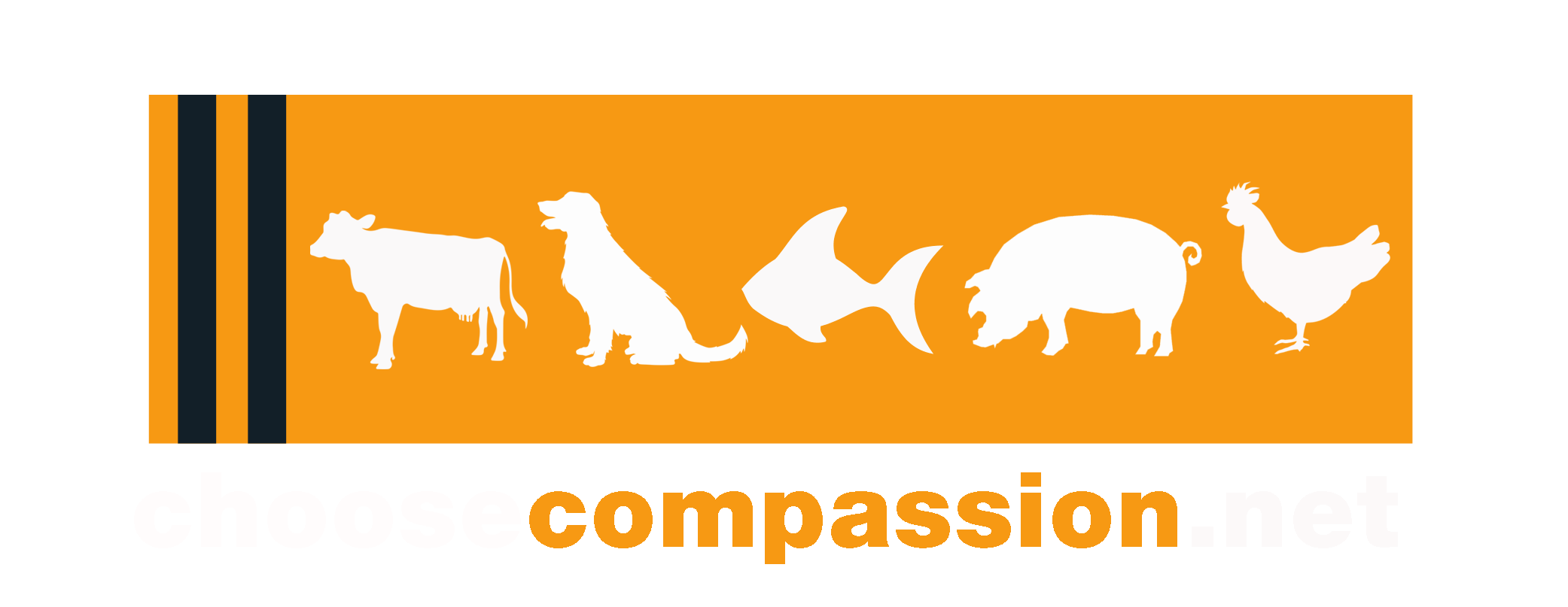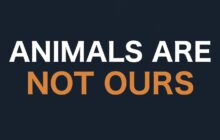
The effectiveness of vegan activism isn’t defined solely by what we believe—it depends on how we communicate it. When advocates position veganism as an opposition to killing and violence, or as a broad anti-oppression movement, they risk misrepresenting its core purpose and diluting its impact. Veganism is not about advocating for a collective liberation of humans and non-human animals—it is a movement singularly focused on ending the systemic exploitation and use of non-human animals.
This misdirection diverts attention from the fundamental issue: the systemic exploitation of non-human animals. Veganism must remain firmly centered on opposing their use, ensuring its message is not diluted or misinterpreted. Advocates must focus on challenging the mindset that treats animals as resources rather than individuals, rather than merely appealing to empathy or condemning cruelty and violence.
Exposing the Root Cause, Not Just the Symptoms
Arguments like ‘plants die’ and ‘animals die in crop farming’ arise because the conversation is often framed as a numbers game rather than a principle. Similarly, people frequently point out that violence and oppression exist among humans—attempting to draw parallels that shift focus away from veganism’s core mission. While oppression in human societies is a real issue, merging it with veganism distorts the movement’s purpose.
Veganism isn’t just about minimizing harm—it is the absolute refusal to view sentient beings as commodities to be used for food, clothing, entertainment, and testing. When advocates fail to maintain this distinction, they unintentionally create space for misconceptions that weaken the movement.
Crop deaths are incidental. Animal exploitation is deliberate. When people fail to see this difference—or when veganism is mistakenly equated with broader human rights struggles—it means we failed to draw the line clearly. Maintaining a sharp focus on the systemic use of non-human animals ensures that the message remains uncompromised and effective.
Sharpening the Four Tools of Activist Communication
As advocates, we have four essential tools that determine our success:
- What We Say
Are we talking about animal exploitation, or are we focused on the emotional weight of violence and suffering? If we define veganism only in terms of preventing killing or reducing harm, we leave gaps for arguments that rationalize continued use—such as the claim that animals die during crop farming, too. Some animals may be used for human benefit without being harmed or killed, yet they are still exploited. If activists focus only on suffering and harm, they leave room for justifications that allow exploitation to continue as long as conditions improve. Veganism is not just about reducing suffering—it is about rejecting any form of animal use.
Human oppression is often invoked as a parallel to animal exploitation, yet this comparison can unintentionally shift focus away from the core issue: non-human animals are not merely victims of harm, but of institutionalized ownership and commodification. This distinction must be made clear: Veganism is not an extension of general anti-oppression efforts—it is a distinct fight against the belief that non-human animals exist for human use. It is about fighting against the very notion that animals exist for human use in any form. Exploitation can occur even when harm is absent, and framing the issue correctly ensures that no victim is overlooked. - How We Say it
The way we frame the issue determines how people respond. If our messaging revolves around stopping unnecessary harm and killing, people may assume that if animals are treated well, their use is justified. This is why activists must emphasize that exploitation is wrong regardless of whether harm is inflicted. - How People Hear It
People interpret messages based on their existing beliefs. If they see veganism as just “reducing suffering” or “avoiding unnecessary harm,” they will rationalize exploitation where harm appears minimized—such as ethical farming or free-range animal use. People may fail to grasp that even animals who are not harmed or killed are still victims of exploitation. Effective communication demands that we center the vegan message where it belongs: A rejection of the belief that animals exist to be used, no matter the conditions. - How It Shapes Their Mindset
Every conversation is an opportunity to reshape how people perceive animals. The goal isn’t simply to stop unnecessary killing—it’s to dismantle the oppressive mindset that sees animals as property. Exploitation does not require physical harm. If activists fail to communicate this fully, people will justify exploitation by improving conditions rather than eliminating animal use altogether. Veganism is not just about eliminating harm; it is about eliminating the justification for animal use in any form. Only when this message is clear will activists drive meaningful, lasting change.
Strategic Vegan Advocacy: Keeping the Message Clear and Focused
For vegan activism to be truly effective, it must challenge how people perceive non-human animals—not just present ethical arguments. A world free from animal exploitation won’t come simply because people agree that suffering is wrong; it will happen when society categorically rejects the belief that animals exist for human use.
Veganism must remain clear in its definition and purpose—it is not merely an opposition to killing or a broader anti-oppression movement. While suffering and harm are byproducts of exploitation, the core issue is the mindset that allows animals to be treated as commodities. If activists allow the message to blur into general opposition to violence or human oppression, they weaken the movement’s ability to target the root cause of animal exploitation.
To create lasting change, the vegan message must remain focused and uncompromised. Every word matters, every conversation shapes perceptions, and every interaction is an opportunity to make the truth undeniable.
Recommended Reads: Uniting for Progress: Overcoming Divisions in the Vegan Community
The True Message of Veganism: Challenging the Egocentric Worldview and Advocating for Animal Rights
Human Liberation, Animal Liberation: Debunking the Myth of Collective Liberation








